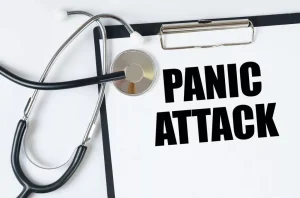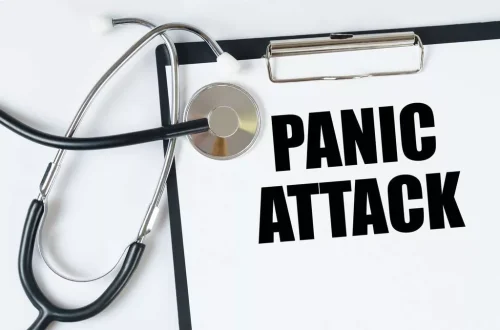
Here, we explore various aspects of peer pressure, particularly focusing on its effects and comparisons with parental pressure. If peer pressure is becoming a problem for your child, consider other school choices. Online schools allow kids to focus on their education without fear of repercussions from classmates. Visit K12.com to learn more about online learning and whether it might be right for your student. For young children it may be excluding a classmate or teasing a less popular peer, for older kids it could be skipping class or trying cigarettes or drugs.

Factors That Affect Learning: Insights for Parents
- Parental peer pressure is an increasingly recognized phenomenon where parents feel compelled to meet or exceed the parenting standards and accomplishments observed among their peers.
- Peer influence can show you there is support, encouragement, and community available to you.
- Research has proven that unrealistic parental expectations can lead to the development of anxiety in children as they grow up in this high pressure environment.
- Instead of telling your child that it’s your way or the highway, try setting house rules with their input and enforce them consistently.
- It’s so powerful that when peers endorse positive and altruistic behavior, young people are more likely to engage in those behaviors—even when their peers are not watching.
This pressure challenges parents to discern between their authentic parenting values and the external demands placed upon them by societal comparisons. Children crave, and need, peer acceptance to feel good about themselves; this is not a form of weakness, but rather, simply a result of how the human brain is wired. When children lack this acceptance, they often become sad or cranky, and may even grow depressed. By Michelle PugleMichelle Pugle writes health articles for award-winning websites, as seen in Healthline, Verywell, Everyday Health, Psych Central, and Health.com. She has a Master’s degree, undergraduate degrees in English and Sociology, a diploma in Holistic Herbal Therapy, and is trained in mental health first aid, anti-violence work, and peer support work.

Tips for Choosing the Right School for Your Child
When your child knows they can come to you without judgment or criticism, they’re more likely to seek your guidance when facing peer pressure. Open communication becomes a bridge between your child’s world and yours, allowing you to guide them through the maze of peer pressure with understanding and care. Wellspring Center for Prevention is a private nonprofit agency serving the community members and organizations of Middlesex and Monmouth Counties. We are dedicated to improving the health and well-being of individuals, families, and communities through our quality prevention and early intervention services. Our programs promote sound mental health, effective family functioning, and awareness of the devastating effects of substance misuse and dependency.

Peer Pressure Beyond Childhood
It can be just the push your child needs to join a new club at school, try a new sport, study for better grades, or attend college. As a parent, you can help your child deal with peer pressure and make good choices at every age and stage. “Teens have so much on their plates,” says Stacie Goran, LPC, LCDC, Teen Recovery Program Manager at Children’s Health℠. From the beginning, parents work to teach their children how to make healthy decisions. But as children age, parents’ influence decreases and the opinion of peers becomes more and more important.
- Part of raising teens includes helping them develop the skills to be clear about their values, while still interacting with people who may have differing ones.
- The Children’s Health pediatric psychiatry and psychology department provides comprehensive services to support children’s and teens’ mental health.
- Excessive or inappropriate parental pressure carries many mental health consequences for kids as they grow up.
- Adolescence is a time when peer pressure, in particular, may seem the hardest to deal with.
- It’s easy to assume that your child is a smaller extension of you who feels the same way you do about the same things.
- Parents can support teens to follow their own thoughts and feelings and still feel like they are fitting in.
- She oversees digital media content development and production for Parentandteen.com.
- For this reason, we prepare our children to navigate teen culture when we help them clarify values and think through what they want for themselves.
By doing so, their inner strength will help them stand firm with their feelings. It’s a combination that lets them resist succumbing to peer pressure and have the strength to walk away. They will know that even if they “fail” among their peers, they will succeed in the long run. Talk to your co-parent, a trusted friend, a therapist, or a support group about your feelings. Sort them out there, so when you are with your child, the interaction serves to support your child rather than alleviate uncomfortable feelings you may have as a parent.
Maybe you admire a friend who is a good sport, and you try to be more like them. Maybe you got others excited about your new favorite book and now everyone’s reading it. For example, you might see what kids in your class are wearing, like it, and wear something like that, too. Dr. Brad Reedy is a Co-owner and the Clinical Director of Evoke Therapy Programs, an experientially-based therapy program for adolescents, young-adults and families.
Reasons Why Your Child Should Learn Robotics
Positive peer pressure can foster sense of belonging, self-confidence and a solidified sense of self. Research has found that children with low self-concept are more susceptible to peer influence and a desire to conform. Peer pressure to use substances like alcohol and cannabis can unfold into problems with substance which of the following is a type of indirect peer pressure? abuse.

